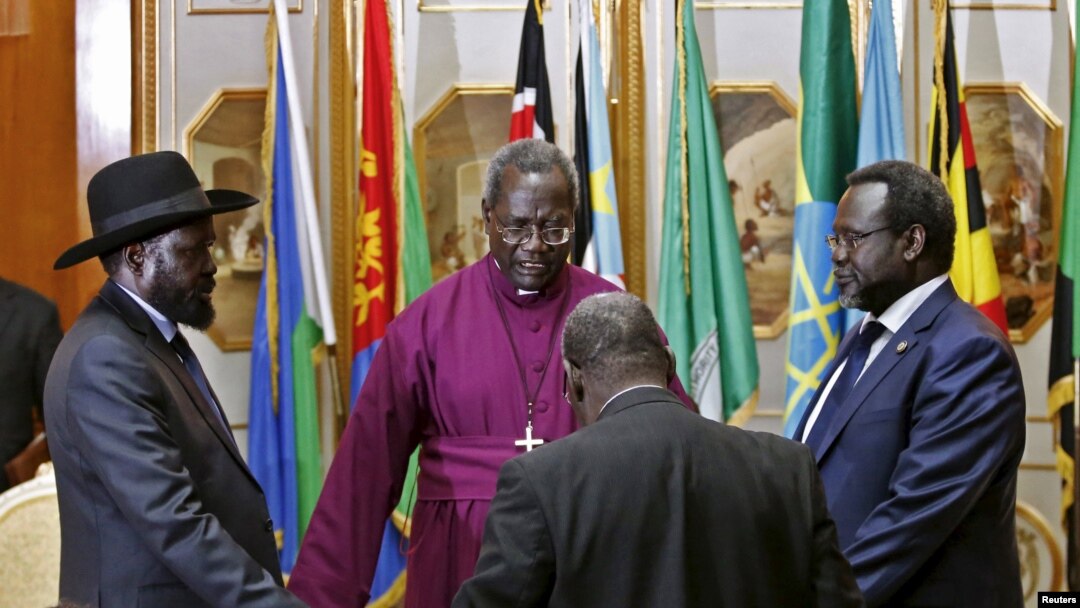South Sudan's president and rebel leader will meet June 20 in Addis Ababa for face-to-face talks, part of an effort by Ethiopian Prime Minister Abiy Ahmed to mediate a peace deal between the two.
"The Movement welcomes this invitation ... it will go a long way in building confidence in the peace process," Machar's spokesman said in an emailed statement.
There has been no immediate reaction from South Sudan's government or from the Intergovernmental Authority on Development (IGAD).
But Kiir spokesman Ateny Wek Ateny called the invitation "significant."
Mabior Garang, spokesman for the Sudan People's Liberation Movement-in-Opposition (SPLM-IO), confirmed to VOA's "South Sudan in Focus" program that Machar will travel from South Africa to Ethiopia for the meeting.
Garang said that the talks' agenda is not yet known, but that the two leaders are expected to address some of the contentious issues blocking the road to peace.
"It's a big step for Riek Machar, the leader of the main armed opposition, to meet President Salva Kiir face-to-face," said Garang. "We see it as a big step forward because he has been in detention for going on two years without charges, and this was hampering the peace process."
Garang said it is a "major breakthrough" that Kiir and Machar have agreed to meet and hopefully "come to some kind of understanding."
The Addis Ababa meeting is to be mediated by IGAD, the East African regional bloc that has led several rounds of failed peace talks.
The SPLM-IO has said the formula for negotiations is flawed because "President Kiir and his political military allies — some of them are party to the conflict and mediators at the same time who can bulldoze processes," Garang said.
This would be the first meeting for Kiir and Machar, who once was Kiir's deputy, since a peace agreement between the government and Machar's rebel group collapsed in August 2016.
Tens of thousands of people have died in the fighting that broke out in December 2013, when troops loyal to Machar fought with government forces in Juba. More than 2 million people have fled the country and another 2 million people are living as internally displaced persons (IDPs) in U.N.-run camps in South Sudan.
Both sides have been accused by the United Nations and human rights groups of committing atrocities against civilians.


